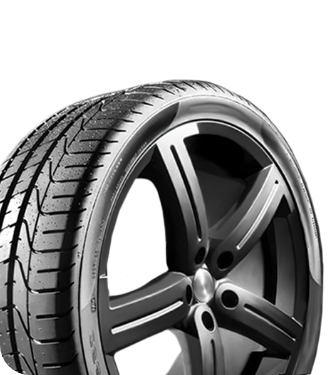

The Impact of Autonomous Vehicles on the Tire Industry
Tires |In the automotive industry, change is constant. And in the next few decades, the automotive industry will herald some breathtaking changes, including autonomous vehicles (AVs). For automotive enthusiasts, this signifies an exhilarating leap into the future of driving.
The introduction of AVs into the everyday world of cars will have profound effects, even when it comes to tires. Below, we’ll explain the impact of autonomous vehicles on the tire industry, from the shift in technology to the environmental impact of this shift.
The Shift in Tire Technology
Autonomous vehicles are driving a wave of innovation in tire technology. Traditional tires, designed for human-operated cars, may not meet the specific needs of AVs.
These self-driving cars require tires that can handle different performance demands, such as enhanced durability and the ability to communicate with the vehicle’s onboard systems. As a result, tire manufacturers are developing new materials and designs tailored specifically for AVs, ensuring optimal safety and efficiency.
New Demands for Tires
AVs require tires that can handle continuous data processing and adapt to changing road conditions without human intervention. This has led to the development of smart tires equipped with sensors. These sensors provide real-time data on tire pressure, temperature, and wear, ensuring optimal performance and safety.
Enhanced Durability and Efficiency
Durability and efficiency are paramount. AVs often rely on electric power, making it crucial for tires to reduce rolling resistance and improve energy efficiency.
Michelin’s Uptis (Unique Puncture-Proof Tire System) is a prime example. These airless tires promise durability and reduce environmental impact by eliminating the need for spare tires.
Autonomous Vehicle-Specific Designs
Tire designs are evolving to cater specifically to AVs. For instance, Continental has introduced tires with a unique tread pattern and rubber compound that enhances grip and reduces noise. This design is for the smoother yet varied driving patterns of AVs, ensuring a safer and more comfortable ride.

Environmental Impact
The rise of autonomous vehicles carries both potential environmental benefits and concerns. On the positive side, AVs could reduce traffic congestion, lower emissions, and improve fuel efficiency, contributing to a cleaner environment.
However, there are also concerns about the production and disposal of AVs and their tires, potential increases in energy consumption, and the environmental impact of manufacturing new technologies. Examine these factors to fully understand the impact of autonomous vehicles on the tire industry.
Reduction in Waste
One of the most significant environmental benefits is the reduction in tire waste. With smart tires providing real-time data, maintenance becomes more efficient, leading to fewer replacements. Additionally, the durability of AV-specific tires could significantly decrease the number of discarded tires in landfills.
Energy Efficiency
Energy efficiency is another critical aspect. Autonomous vehicles, primarily electric, benefit from tires designed to minimize rolling resistance.
This reduces energy consumption, leading to lower greenhouse gas emissions. AVs can also communicate with smart tires to adjust tire pressure, further optimizing energy usage and reducing environmental impact.
Sustainable Materials
Innovations in sustainable materials are pivotal in the evolution of tire manufacturing for autonomous vehicles. One notable example is the use of natural rubber sourced from sustainable plantations, which reduces reliance on synthetic rubber derived from petroleum.
Some manufacturers are also incorporating recycled materials, such as reclaimed rubber and polyester from discarded plastic bottles, into their tire production. These advancements mitigate environmental impact and contribute to the circular economy by reusing materials that would otherwise end up in landfills.
Production Concerns
However, the production of advanced tires poses challenges. The use of high-tech materials and manufacturing processes can lead to a higher carbon footprint. To mitigate these environmental impacts, tire manufacturers must adopt sustainable practices, such as using recycled materials and optimizing production processes.
Industry Responses and Challenges
As the tire industry adapts to the rise of autonomous vehicles, it faces both opportunities and challenges. These advancements require innovative tire designs that can support new driving technologies, enhance safety, and improve efficiency.
Understanding how manufacturers are responding to these demands, such as developing smart tires with embedded sensors for real-time monitoring, can provide valuable insights into the industry’s future. Also, collaboration between tire companies and tech firms is becoming increasingly crucial in driving these innovations forward.
Collaborations and Partnerships
Tire manufacturers are collaborating with AV companies, such as Ford and General Motors, to develop and test tires tailored for autonomous vehicles. These partnerships allow for the integration of tire technology with AV systems, ensuring optimal performance.
Balancing Safety and Performance
Safety is always the top priority in the automotive industry, whether it’s car or tire technology, and that’s no different with the development of AV-specific tires. Balancing safety with performance and efficiency is a significant challenge for tire manufacturers. Although autonomous vehicles should minimize accidents, it becomes crucial for tires to perform optimally in all weather conditions and road surfaces.
Integration of AI
Another significant development in response to AVs is the integration of artificial intelligence (AI) in tire design and manufacturing. Using AI, manufacturers can analyze vast amounts of data from smart tires to continually optimize designs and production processes. This leads to improved performance and reduces environmental impact.
Cost Considerations
The development of new tire technology comes at a cost. Manufacturers face the challenge of balancing the need for innovation while keeping costs affordable for both car owners and fleet operators. This requires careful consideration of materials, processes, and partnerships to bring these advancements to the market without compromising quality or safety.
Navigating Regulatory Hurdles
Regulatory challenges are inevitable. Ensuring that new tire technologies comply with safety standards and environmental regulations requires substantial effort and investment. Manufacturers must work closely with regulators and policymakers to ensure that these advancements meet all requirements without hindering progress.
Addressing Consumer Concerns
Consumer acceptance is another critical factor. High-net-worth individuals, the primary target audience for AVs, demand reliability and safety. Because of this, tire manufacturers must address any concerns and provide transparent information on the performance and environmental impact of AV-specific tires. This will increase consumer confidence and promote sustainability in the industry.
Find Tires for Your AV or Other Vehicle at RNR Tire Express!
The evolution of tire technology to cater to autonomous vehicles is an exciting development in the automotive industry. At RNR Tire Express, we stay ahead of the curve by offering a wide range of products at our tire shop in McAllen and other locations. Whether you have a self-driving car or just need a tire rotation for your everyday commuter, the helpful and expert team at RNR Tire Express is here to help!






